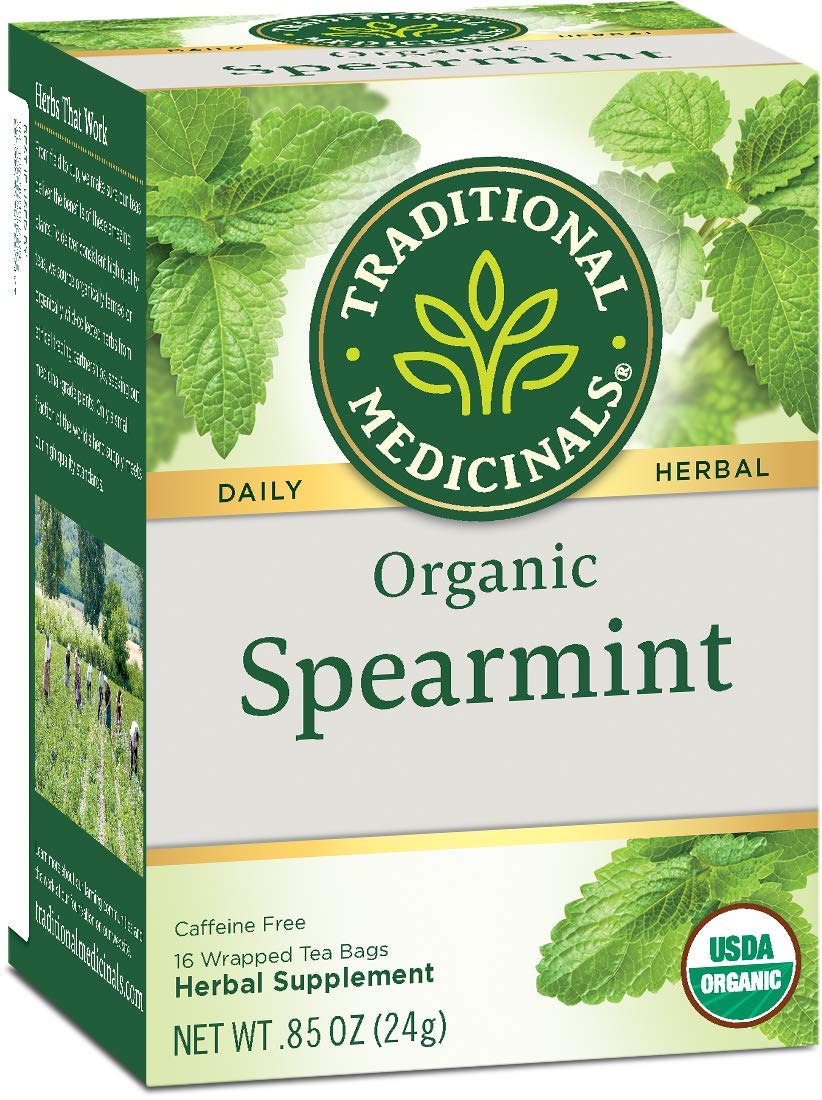Spearmint Tea

Proven Health benefits of Spearmint Tea:
- Remedy for osteoarthritis
- Treats colds and headaches
- Potent against sore throat
- Relieves pains from cramps, toothaches and inflammations
- The tea leaves a relaxing effect and can calm tense individuals
- Fights against complications with digestion and irritable bowel syndrome
What is Spearmint Tea?
Spearmint tea comes from spearmint leaves, a plant that belongs to the family, Lamiaceae, and the aromatic genus of Mentha (mint). Spearmint (Mentha spicata), also called common mint or garden mint, is the most common in the genus, which in turn is the most cultivated plant for essential oils. The plant is a short perennial shrub with the characteristic square-shaped stems of mint. The leaves are broad and rough with serrated edges and possess peculiar strong aroma of mint. Spearmint tea is common among herbal tea lovers, because of its aromatic soothing nature. The leaves are dried for this purpose and steeped in hot or boiling water to make the tea. Other spices, milk or sweetening may be added. Spearmint is also much useful in the cosmetic and fragrance industries, and even for insecticides.
What is the Usefulness of Spearmint Tea?
As you would rightly gram-negative guess, the special properties of spearmint come from its essential oil. It is first a potent antimicrobial agent. A study tested spearmint against gram negative bacteria and fungi and reported that even small concentrations inhibited these organisms.1 Rosmarinic acid in spearmint tea has ben shown in studies to possess anti-inflammatory, antioxidant and immunosuppressant abilities. A study observed that horses that were administered rosmarinic acid had Prostaglandin-E reduced and glycosaminoglycan inhibited, to help protect their joints from inflammation and arthritis.2 Extracts in spearmint tea has also been shown to be effective against itchy skin and inflammations in the mouth. Another study also shows that spearmint tea has significant anti-androgen properties in women with hirsutism and improves their condition.3
Health benefits
- Antimicrobial
- Anti-inflammatory
- Pain relief
- Relaxant
- Antioxidant
- Antispasmodic
- Irritable bowel syndrome
- Bile duct and gall bladder inflammations
Nutrition
Spearmint tea contains minerals, and carbohydrates, which are reduced from 3% and 10% in the fresh leaves to about 4% and 1% respectively in the tea. The minerals include Sodium and Calcium. Laboratory analysis of the polyphenolic content of spearmint identify about 66 different compounds. However, the most prominent ones include carvone, limonene, 1,8-cineole, menthone menthol and eucalyptol. Rosmanol and rosmarinic acid derivatives are also highly featured.
Toxicity
Spearmint tea has not been known to cause any deleterious effects in humans, and the US FDA labels it as safe for intended use. Individuals, that are allergic to mint or some other polyphenols in spearmint normally experience rash, throat irritation or dizziness.